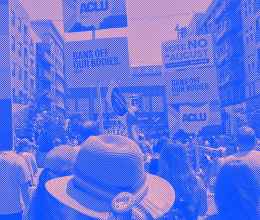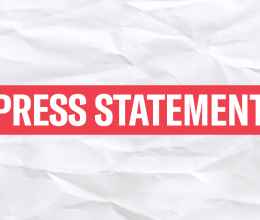The First Amendment guarantees all persons the right to practice their faith without government intrusion, including the right to abstain from religious belief or expression altogether.
This goes to the heart of what it means to be American. The Constitution’s insistence on religious freedom makes our personal liberties genuine.
This is why Ward 1 Cleveland City Councilman Joe Jones’ campaign to bring God into council chambers is potentially problematic, if the city’s great diversity of religious traditions and viewpoints is not welcomed and encouraged.
The Cleveland City Council has religious diversity among its elected members, as some local reporters have pointed out, but that’s not the real issue. The greater focus should be on the diversity of Cleveland’s citizenry, on whose behalf the city conducts its business.
While the Supreme Court has upheld government prayers as permissible in limited occasions, such as the beginning of legislative sessions or town council meetings, it has also been explicit that these government bodies have a responsibility to ensure that diverse faiths and perspectives are represented – and this diversity must be genuine, not token.
Prayers at government meetings cannot be used to proselytize, coerce or demonize others. The majority must never be allowed to use the machinery of the state to advocate the superiority of its beliefs.
Our nation’s founders knew that both religion and government are manipulated when they become intertwined. The state, if able to control the church, would become all-powerful and resistant to religion’s occasional and necessary moral rebukes. And religion itself – if allowed to become a tool of the state – is inevitably weakened, because coercion – instead of true conviction – becomes the motivating force.
It is no accident that the rate of attendance at religious services in the United States, where there is no official sanctioned religion, is nearly four times that of many European countries, where state churches still exist and clergy are on the government payroll.
As an ordained minister myself, I am convinced that the Establishment Clause, which compels our government to remain neutral on religious matters, has done more to foster the flourishing of religious expression more than any government coaxing of religious practices could ever do.
Anyone who insists that government – rather than churches, synagogues and mosques – should play a role in advancing religion is taking a jackhammer to our nation’s democratic cornerstone: the First Amendment.
This is why state-led prayer violates the Constitution, because government is crossing the line when it begins advocating particular religious viewpoints.
Since its founding in 1920, the American Civil Liberties Union has vigorously defended the rights of persons to practice their faith in public. Perhaps a surprise to some, most of these cases have been in defense of Christians.
But public exercise of religion does not afford anyone, especially an elected official, use of the government to demean or diminish those of other faiths, or of no faith.
In 2017, this important principle was upheld yet again, after the ACLU won a federal lawsuit against North Carolina’s Rowan County Board of Commissioners, where government meetings were opened with coercive politician-led prayers.
Perhaps the last thing prayer should do is create a hostile environment, but most especially when it’s the government unconstitutionally doing the praying.
"When a seat of government begins to resemble a house of worship, the values of religious observance are put at risk, and the danger of religious division rises accordingly,” the U.S. Fourth Circuit Court of Appeals ruled.
The U.S. Supreme Court examined the subject just three years prior in Town of Greece v. Galloway (2014), when then-Justice Anthony Kennedy wrote for the court that public meeting invocations that “denigrate nonbelievers or religious minorities, threaten damnation, or preach conversion, …or fall short of the desire to elevate the purpose of the occasion and to unite lawmakers in their common effort” are constitutionally problematic.
As the Fourth Circuit underscored in the Rowan County case, “Proclaiming the spiritual and moral supremacy of Christianity, characterizing the political community as a Christian one, and urging adherents of other religions to embrace Christianity as the sole path to salvation” is blatantly unconstitutional, calling it “state-entwined religious orthodoxy.”
“The great promise of the Establishment Clause is that religion will not operate as an instrument of division in our nation,” the appeals court said. “… [The Constitution] does not permit a seat of government to wrap itself in a single faith.”
The ACLU of Ohio proudly continues its important work to ensure that no government entity oversteps its legal boundaries, because both the U.S. Constitution and our individual religious freedoms depend on it.







